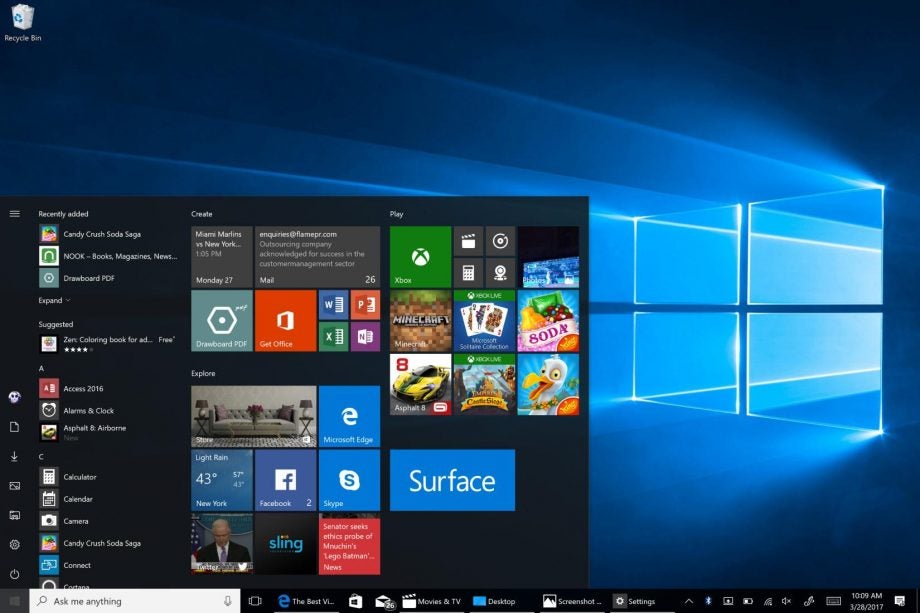Andromeda OS is Microsoft’s mission to make Windows 10 truly modular

Details of Microsoft’s goal to mould Windows into a modular operating system to work across all manner of gadgets have surfaced, under the name Andromeda OS.
Workers at Redmond familiar with Microsoft’s internal projects spilled the information to Windows Central, and explained that Andromeda OS has the goal of making Windows more flexible so that it can run on devices not normally suited for an operating system that’s based on old and demanding code, architecture and features some 30-years-old.
Instead of simply trying to scale Windows to run on say smart watches or low-powered tablets, Andromeda OS will turn Windows 10 into a modular system suitable for different architectures rather than the x86 architecture used by desktops, laptops, and tablets running Intel or AMD chips.
And functions can be added or taken away from Andromeda OS to suit the system or device it’s required to run on, essentially offering an easy way for developers to use a Windows OS without being hampered by performance-sapping features their device might not need.
If Microsoft can make Andromeda OS work, then it would likely spell an end for all the variants of Windows 10 that are currently out in the wild, such as Windows 10 Mobile and Windows 10 on Xbox.
According to Windows Central, Microsoft will aim to have Andromeda OS initially focused on mobile devices, with it scheduled to make its official debut some time in 2018. This release date would make sense as it’s around the time we could expect to see a Surface smartphone make its debut, where it would be logical to have a component-based version of Windows 10 rather than the lacklustre attempts Microsoft has had with mobile operating systems in the form of Windows Phone.
Given Microsoft has a suite of hardware and platforms under its corporate banner, such as HoloLens, the Surface range and various smart devices, having a single operating system that can work across all of them would seem like a shrewd move and in keeping with Microsoft’s Windows strategy. Redmond already has two unified platforms under its belt; OneCore and the Universal Windows Platform, both of which make it easier for developers to create Windows-based apps than can be easily run across different devices.
Related: How to download Windows 10 Creators Update
What tech would you like to see have the modular treatment? Let us know on Facebook or tweet @TrustedReviews.

